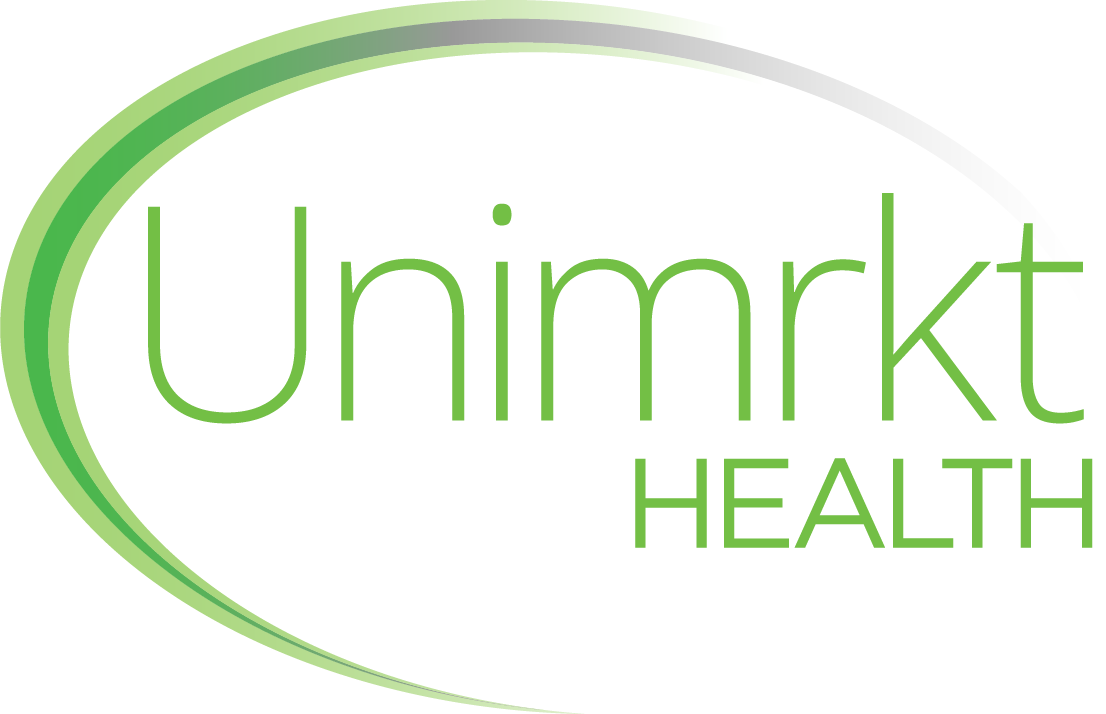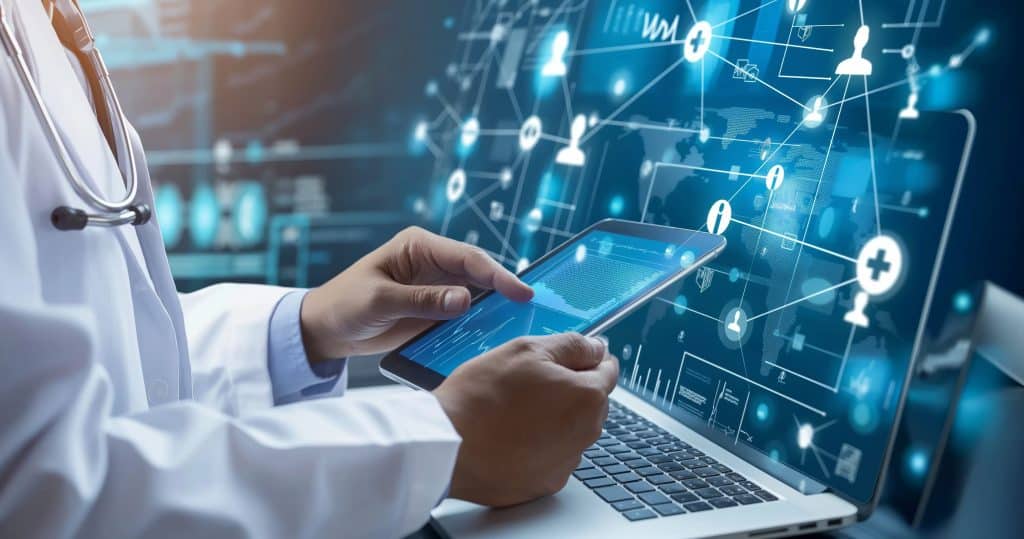IoT in Telehealth: The Potential for Transformation
- Unimrkt Healthcare » Blog » IoT in Telehealth: The Potential for Transformation
In recent years, the integration of digital health technology into healthcare systems has opened up new avenues for revolutionizing healthcare delivery. One such technology that’s gradually getting much-deserved praise is the Internet of Things (IoT). IoT devices, ranging from wearable monitors to smart home healthcare systems, can empower both patients and healthcare providers in numerous ways. As a leading telehealth research company, we can vouch that this convergence of telehealth and IoT will not only improve access to healthcare services, but also transform the traditional healthcare model from reactive to proactive, emphasizing preventive measures and early intervention. This can lead healthcare delivery to become more patient-centered, efficient, and cost-effective than ever, marking a significant step forward in the evolution of modern healthcare. In today’s article, we will explore the significance of such digital health solutions in healthcare and their potential to transform telehealth services. But before that, let us shed light on the major challenges that traditional healthcare systems face.
Challenges Faced By Traditional Telehealth Systems
Traditional telehealth systems often face several challenges that can hinder the widespread adoption of telehealth and limit its effectiveness in delivering comprehensive care. The first step to overcoming these hurdles is to know them thoroughly. Only then, companies can deploy appropriate digital healthcare solutions to improve their operations. Here are some of the most common challenges facing traditional healthcare systems:
- Limited data collection capabilities: Traditional telehealth systems often lack the ability to collect comprehensive data beyond basic patient information. This lack of in-depth data eventually limits the depth of insights that healthcare providers can gather.
- Lack of real-time monitoring: Many traditional telehealth systems do not support real-time monitoring of patient vital signs or health metrics, which can delay timely interventions and impact the quality of care.
- Poor integration with existing healthcare infrastructure: Integration with electronic health records (EHRs) and other healthcare systems can be challenging for traditional telehealth platforms, leading to inefficiencies and fragmented care delivery.
- Concerns about data security and privacy: Telehealth systems must adhere to stringent data security and privacy regulations to protect patient information. However, traditional systems may not always meet these standards, leading to concerns about data breaches and unauthorized access.
- Digital divide and access disparities: Not all patients have access to the technology required for telehealth consultations, leading to disparities in access to care, particularly among underserved populations and those in rural areas.
- Reimbursement and regulatory barriers: Telehealth reimbursement policies and regulatory frameworks vary widely by region and can create barriers to adoption for healthcare providers, limiting the availability and accessibility of telehealth services.
- Resistance to change among healthcare professionals: Some healthcare professionals may be hesitant to adopt telehealth technology due to concerns about workflow disruption, patient satisfaction, and professional autonomy.
- Patient engagement and adoption challenges: Engaging patients in telehealth consultations and encouraging the adoption of remote monitoring devices can be challenging, particularly among older adults or those with limited technological literacy.
- Limited scope of services and lack of comprehensive care offerings: Traditional telehealth systems may focus on specific types of consultations or services, limiting their ability to provide comprehensive care and address a wide range of patient needs.
What is IoT?
Digital technology in healthcare has come a long way in just a matter of decades, thanks to the introduction of IoT. For the uninitiated, IoT refers to a network of interconnected devices embedded with sensors, software, and other technologies that enable them to collect and exchange data. These devices can range from everyday objects such as wearable fitness trackers and smart home appliances to sophisticated medical devices and industrial machinery. IoT technology allows for seamless communication between devices, enabling them to gather information, analyze it, and take action autonomously or with minimal human intervention. By connecting the physical world to the digital realm, IoT has the potential to revolutionize healthcare. Successful deployment of IoT measures can help improve efficiency, productivity, and decision-making processes.
Significance of IoT in Healthcare
By adopting IoT, healthcare providers can deliver personalized and timely care while empowering patients to take control of their health. Here are some of the significant benefits that companies can reap by deploying IoT in their healthcare operations:
- Enhanced remote monitoring capabilities: IoT enables healthcare providers to remotely monitor patients’ activity levels and other health metrics in real-time, regardless of their location.
- Real-time data collection: IoT devices continuously gather health-related data, allowing for eventual analysis and timely interventions.
- Improved patient engagement and empowerment: IoT technologies help patients actively practice self-healthcare. It does so by providing them access to their personal health data. This eventually fosters and encourages proactive participation in treatment plans.
- Personalized and proactive healthcare interventions: By leveraging IoT data, healthcare providers can deliver personalized care plans tailored to individual patients’ needs, focusing on prevention and early intervention rather than reactive treatment.
- Facilitation of telemedicine and virtual care: IoT enables remote consultations and virtual care delivery, enhancing access to healthcare services, particularly in underserved areas or during emergencies.
- Optimization of healthcare resource utilization: IoT helps streamline healthcare operations by optimizing resource allocation, reducing unnecessary hospital visits, and improving overall efficiency.
- Early detection of health issues and prevention of complications: Continuous monitoring and analysis of IoT data enable early detection of health issues, facilitating timely interventions to prevent complications and improve patient outcomes.
- Integration with existing healthcare systems and workflows: IoT technologies can seamlessly integrate with existing healthcare infrastructure, including electronic health records (EHRs) and clinical workflows, enhancing interoperability and data exchange.
- Potential for cost savings and healthcare efficiency improvements: By improving patient outcomes, reducing hospital readmissions, and optimizing resource utilization, IoT has the potential to generate significant cost savings and enhance overall healthcare efficiency.
Applications of IoT in Telehealth
IoT technology is set to revolutionize telehealth by addressing the limitations of traditional systems and introducing innovative approaches to healthcare delivery. The potential applications of IoT in telehealth are diverse and impactful:
Remote Patient Monitoring
IoT devices play a pivotal role in enabling comprehensive remote patient monitoring. These devices, as mentioned before, ranging from wearable sensors to smart home monitoring systems, facilitate the continuous tracking of patients’ vital signs, including heart rate, blood pressure, and oxygen levels. Healthcare providers can remotely access this real-time data, allowing for proactive management of chronic conditions, early detection of deteriorating health, and timely interventions to prevent complications.
Chronic Disease Management
IoT solutions offer a lifeline for individuals grappling with chronic diseases. Through IoT-enabled devices, patients can closely monitor their health status, track symptoms, and manage their medication regimens more effectively. The integration of personalized data analytics allows healthcare professionals to offer tailored guidance and interventions, promoting enhanced disease management, reducing hospitalizations, and improving the overall quality of life for individuals with chronic conditions.
Medication Adherence
Smart pill dispensers and medication reminder systems powered by IoT technology address the longstanding challenge of medication adherence. These intelligent devices provide timely reminders for medication intake, helping patients adhere to prescribed treatment plans. By reducing the risk of missed doses, these systems enhance treatment efficacy, minimize the occurrence of adverse events, and contribute to better health outcomes.
Telemedicine Consultations
The fusion of IoT and telemedicine facilitates seamless virtual consultations between patients and healthcare providers. IoT-enabled devices such as video conferencing tools, remote diagnostic equipment, and home monitoring devices allow individuals to access healthcare services from the comfort of their homes. This not only improves the accessibility of medical care, particularly in remote or underserved areas but also reduces the burden on healthcare infrastructure by minimizing unnecessary in-person visits.
Emergency Response Systems
IoT sensors and wearable devices can lead to the development of advanced emergency response systems. These devices can detect critical events such as sudden changes in health status. In the event of an emergency, automated alerts are sent to caregivers or emergency services, ensuring a rapid and targeted response. This application of IoT in telehealth enhances the safety and well-being of individuals, especially those who are elderly or prone to health emergencies.
Final Word
The integration of IoT technology into telehealth holds immense promise for transforming the way healthcare is delivered. By overcoming the limitations of traditional telehealth systems and enabling enhanced, personalized, and proactive care, IoT can help improve patient outcomes, improve accessibility, and reduce healthcare costs. As the healthcare industry continues to embrace digital innovation, leveraging IoT in telehealth will be crucial for realizing these transformative benefits. However, to fully leverage the potential of IoT in telehealth, organizations need robust research and development efforts. This is where hiring a specialized telehealth research company becomes crucial. When looking for a leading telehealth research company, look no further than Unimrkt Healthcare. With our expertise, you can get access to superior data that will enable you to navigate regulatory challenges, address implementation barriers, and ensure that your telehealth initiatives deliver maximum value to patients and other stakeholders alike. To learn more about what we can bring to the table, simply call +91-124-424-5210, +91-9870-377-557, or email sales@unimrkthealth.com. Alternatively, you can also fill out our contact form for a prompt response.
Recent Posts
- 10 Medical Online Survey Mistakes You Must Leave Behind in 2025
- How Qualitative Healthcare Research Can Accelerate Ethical AI Adoption
- Trust as a Growth Strategy: What Healthcare Leaders Can Learn From Business Market Analysis
- Mapping the Healthcare Value Chain: A Market Research Perspective
- Decoding Emotional Triggers in Treatment Choices: A Qualitative Approach
Archives
Quick Enquiry
Customer Service, We Make it Better
Related Posts:
Let's Connect
Please, fill in the form to get in touch!



